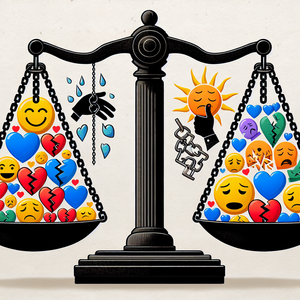Gamifying Learning with Delta Math

Gamification involves applying game design elements in non-game contexts to encourage participation and engagement. In the realm of education, this can mean using points, badges, leaderboards, or challenges to create a more dynamic learning environment. Research shows that gamification can lead to increased motivation, improved retention of knowledge, and a more positive attitude toward learning. According to a study published in the Journal of Educational Psychology, students who participated in gamified learning environments reported higher levels of engagement and achievement compared to traditional learning methods. By applying these principles within Delta Math, educators can create a more compelling and interactive experience for their students.
Strategies for Incorporating Gamification in Delta Math
1. Create Challenges and Competitions: One of the simplest ways to gamify Delta Math is by organizing challenges or competitions among students. Educators can set specific goals, such as completing a certain number of problems or achieving a target score within a given timeframe. For instance, a weekly challenge can encourage students to solve as many math problems as they can, with top performers earning recognition or rewards. This friendly competition not only motivates students but also fosters a sense of community in the classroom. A report from an elementary school using Delta Math noted a 30% increase in participation during math lessons after initiating weekly challenges. 2. Implement a Reward System: Integrating a reward system can enhance the gaming experience within Delta Math. Teachers can assign points for completed assignments, accuracy, and progress. These points can accumulate to unlock various incentives, such as homework passes, extra credit, or even small prizes. For example, a student reaching a milestone of 100 points could receive a certificate or badge, reinforcing their achievement and encouraging continued effort. A high school teacher noted that students were more likely to complete assignments when they knew they could earn points toward tangible rewards. 3. Utilize Badges and Levels: Delta Math allows educators to track student progress, which can be effectively tied to a badge system. By creating a series of badges for different accomplishments—such as mastering specific topics, completing a set number of exercises, or improving test scores—students can visually see their progress. Additionally, introducing levels (e.g., novice, intermediate, expert) based on their performance can create a sense of advancement and achievement, motivating students to strive for higher levels of mastery. Research from the International Journal of Game-Based Learning supports this, indicating that badge systems can significantly enhance student motivation and engagement. 4. Incorporate Team-Based Learning: Team-based learning can add a collaborative aspect to gamification. Teachers can group students into teams and assign them joint challenges or projects within Delta Math. This approach not only encourages teamwork but also allows students to learn from one another. For instance, teams can compete to solve a series of math problems, with a leaderboard showcasing their collective performance. This not only enhances engagement but also builds communication and problem-solving skills. A study conducted by the Educational Research Review found that cooperative learning strategies, such as team challenges, led to improved academic performance and interpersonal skills among students. 5. Use Real-World Scenarios: Integrating real-world scenarios into math problems can make learning more relevant and exciting for students. Educators can design Delta Math assignments that simulate real-life situations, such as budgeting, construction projects, or planning events. By presenting math as a tool to solve real-world problems, students are more likely to see the value in what they are learning, thereby increasing their engagement and motivation. For example, a teacher who incorporated budgeting projects into their Delta Math assignments noted that students became more invested in their learning when they could see the practical applications of math concepts.
Supporting Examples
Several educators have successfully implemented gamification in their classrooms using Delta Math. For instance, a middle school teacher reported increased participation and excitement after introducing a points-based reward system. Students who were previously disengaged began to actively participate, motivated by the prospect of earning points and badges. Similarly, a high school math teacher organized a monthly competition where students formed teams to tackle complex problems on Delta Math, resulting in improved collaboration and communication among peers. These examples illustrate the positive impact of gamification on student engagement and performance.
Gamifying learning with Delta Math offers a promising approach to enhance student engagement and motivation in mathematics education. By incorporating challenges, rewards, badges, team dynamics, and real-world applications, educators can transform traditional math assignments into exciting and interactive experiences. As we continue to explore innovative teaching methods, gamification stands out as a powerful strategy that not only makes learning fun but also supports deeper understanding and mastery of mathematical concepts. Embracing this approach may be the key to unlocking the full potential of students in today’s digital learning environment. By leveraging platforms like Delta Math, educators can create a vibrant and effective math learning experience that resonates with today’s learners.
Educational Technology Specialist
Core Responsibilities
Develop and implement technology integration strategies to enhance teaching and learning experiences.
Provide training and support for educators in using educational software and tools, including gamification platforms like Delta Math.
Evaluate the effectiveness of technology tools and recommend improvements based on feedback and data analysis.
Required Skills
Strong understanding of educational theories and instructional design principles.
Proficiency in various educational technologies and software applications.
Excellent communication and presentation skills for training sessions.
Common Employers
School districts
Educational consulting firms
Universities
Curriculum Developer with a Focus on Gamification
Core Responsibilities
Design and create engaging curriculum materials that incorporate gamification elements to enhance student learning.
Collaborate with teachers to integrate game-based learning strategies into existing curricula.
Assess the effectiveness of gamified curricula through data analysis and student feedback.
Required Skills
Experience in curriculum design and a strong understanding of learning objectives.
Familiarity with game mechanics and their application in educational contexts.
Ability to work collaboratively with educators and stakeholders to meet diverse learning needs.
Common Employers
Educational publishers
School districts
Online learning platforms
Learning Experience Designer
Core Responsibilities
Create interactive and engaging online learning experiences that utilize gamification principles to boost student motivation and participation.
Conduct user research to understand learner needs and preferences, tailoring content accordingly.
Utilize data analytics to evaluate learner engagement and adapt experiences for continuous improvement.
Required Skills
Proficiency in instructional design software and tools (e.g., Articulate Storyline, Adobe Captivate).
Strong graphic design skills and familiarity with user interface/user experience (UI/UX) principles.
Knowledge of game design and mechanics, along with a passion for educational innovation.
Common Employers
E-learning companies
Corporate training departments
Educational technology firms
Data Analyst in Education Technology
Core Responsibilities
Analyze student performance data from gamified learning platforms to identify trends and areas for improvement.
Create reports and visualizations to communicate findings to educators and stakeholders.
Collaborate with product teams to enhance data-driven decision-making processes in educational tools.
Required Skills
Strong analytical skills and experience with data analysis tools (e.g., Excel, SQL, Python).
Ability to interpret educational data and translate insights into actionable recommendations.
Familiarity with statistical methods and data visualization techniques.
Common Employers
Educational technology companies
Research institutions
School districts
Game Designer for Educational Software
Core Responsibilities
Design and develop engaging and educational game mechanics for learning platforms, focusing on math and other subjects.
Collaborate with educators to ensure game content aligns with educational standards and learning objectives.
Test and refine game features based on user feedback to enhance the learning experience.
Required Skills
Proficiency in game design software (e.g., Unity, Unreal Engine) and programming languages (e.g., C#, Java).
Strong creative thinking and problem-solving skills tailored to educational contexts.
Experience in user testing and iteration processes for game development.
Common Employers
Educational game developers
Tech startups focused on educational tools
Large publishers with an educational division


